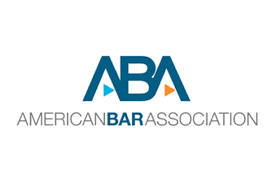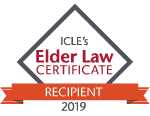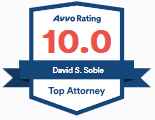Navigating Bankruptcy
Request Your Legal Consult Here.
Bankruptcy
“The principal purpose of the Bankruptcy Code is to grant a “fresh start to the honest but unfortunate debtor.” — United States Supreme Court
Bankruptcy is a legal vehicle that allows a consumer or company to clear debts by way of liquidation or repayment. There are many different options–or “Chapters”–to file bankruptcy. For the average consumer, the options are limited to a Chapter 7 filing or a Chapter 13 filing. Filing bankruptcy can either discard debt or create a repayment plan to repay debts. A successful Chapter 7 filing clears all debt, and is synonymous with liquidation. The other option, Chapter 13, allows a debtor to keep their assets and repay their debts. These Chapters, and laws that govern the process of bankruptcy are from the U.S. Bankruptcy Code federal law.
It is important to know upfront that bankruptcy cannot clear debts from unpaid taxes, unpaid support orders, student loan debt, and a few other types of debt. Speak with an attorney regarding your debts to determine if bankruptcy can help you out of a financial crisis. Speaking with an attorney is essential in a bankruptcy filing because bankruptcy has long-term financial and legal consequences.
A mistake in a bankruptcy case can leave devastating financial and legal results.
Automatic stay protection may be one of the biggest benefits you receive when filing for bankruptcy. Essentially, this protection stops all creditor actions against you the second you file your bankruptcy case with the court. This can be a powerful protection to protect your home against foreclosure, regardless of how close the sheriff’s sale date is.
Concerned About Filing Bankruptcy?
Call us for Your Consult
at 888.789.1715 or
Complete This Form
Videos
A Word Or Two About Bankruptcy and Debt Issues.
Bankruptcy
Frequently Asked Questions
Top Questions About Bankruptcy
One of the the main purposes for the United States Bankruptcy law has been to provide a “Fresh Start” to individuals or business owners overburdened by debt, and who seek to save and/or preserve their hard earned assets from creditors. There’s usually a lot of questions surrounding what someone should do who is thinking about bankruptcy, let us help.
What does filing a Chapter 7 mean?
Chapter 7 bankruptcy is commonly known as liquidation, or sometimes also referred to as straight bankruptcy. It is probably what you think of when you think of bankruptcy. This type of filing allows you to walk away from unmanageable debts, and also avoid paying those debts back to creditors. You can also let go of the fear that creditors will later come after you on these debts.
What does filing a Chapter 13 mean?
A chapter 13 bankruptcy filing implements a repayment plan on to the debtor which allows a consumer to keep their property by repaying debts to the bankruptcy court. In essence, this type of filing allows you to keep your assets and property by repaying the debts, in contrast to liquidating assets and property to eliminate debt, as is the case in Chapter 7 filings.
.
What are the benefits of filing a Chapter 13?
A Chapter 13 filing will help you in many situations. With this legal option, you can save your home from foreclosure, get rid of second mortgages and other liens, avoid additional liens on other property (such as cars and boats), stop repossession on property, stop garnishments, and catch-up on back-due support payments. Additionally, Chapter 13 provides the option for a consumer to consolidate debt payments into a single, affordable monthly payment. With this consolidation, the debt can be paid off and discharged at the end of 3 to 5 years. During these years, you are protected from creditors.
What are the benefits of Chapter 7?
Along with discharging debts, Chapter 7 filings offer some key benefits and protections to the consumer-filer. To name just a few: automatic stay protection and no tax consequences. Unlike a “debt settlement” or “debt negotiation,” where you settle with a creditor for less than the total amount owed and then have to pay income tax on the amount that is “charged off” or “forgiven” (after they send you a Form 1099 notifying the IRS of the “charge off”), you cannot be charged income tax on a debt that was discharged in bankruptcy.
What is the "preference period?"
Another thing that you need to consider prior to filing a Chapter 7 is whether you repaid any money to your friends or relatives within the “preference period” prior to filing bankruptcy. If you did, the Chapter 7 Trustee can (and likely will) sue that person to get the money back from them. This will likely force them to repay all or part of the money and/or cause them to incur substantial attorney fees to fight the Trustee. If you need to file bankruptcy quickly and are concerned about preferences, you can file a Chapter 13.
Why Clients Choose Us
Once You Call, You'll Appreciate the Difference.
Former Big Bank "Insider"
HigHest Peer and Client Ratings
24 Hour Response

30 +Years of Legal & Business Experience
Affordable & Approachable
Innovative & Creative solutions
We Reduce Legal Exposure & Financial Risk. Every Day.
Real Estate Law
Real estate and finance law are their own legal specialties. So how do you determine which attorney you should work with...
Contract Law
Contracts regulate expectations between parties. Working without a contract is comparable to walking a high wire without a net.
Business Law
Attorneys having years of both practical business experience as well as legal expertise are rare. David Soble is one of these...
Financial Disputes
David Soble has decades of experience as a 'big bank insider." He and his business management team are uniquely situated when it comes to handling our clients stressful financial...
Litigation
We regularly and successfully litigate real estate and contract issues. While we prefer to first resolve our client's issues reasonably and amicably, we can and certainly will escalate....
Probate & Estate Planning
For most people, their home, or other real estate, is the most valuable asset that they own. We're dedicated to protecting our clients' assets and ensure that their legal interests...
What Happy Clients Say…
Don’t take our word for it! We’re one of the best reviewed law firms in the community.
See hundreds of our reviews on Google, Avvo, Social Survey and Linked In.
"l was a client of Mr. Soble and he was very pleasant to work with and he took my case right away. He took time to answer all the questions and concerns that l had. When l called him, he got back to me that same day. We settled on an offer, and then received our check in a timely matter. l recommend the Soble Law firm for all your real estate needs because they take care of business."
Lisa S., Southgate, MI
![]()
The balance for one of my credit cards was over $14,000. In less than one week David and his staff were able to negotiate a new balance for less than $4000. We saved over $10,000. This was for just on one of our cards. I have to admit that my husband and I were skeptical at first, but they delivered. I now understand why the meaning behind the name. David and his staff are truly a Proven Resource!
J. James
![]()
"Attorney David Soble lives up to his firm's namesake, "Proven Resource." I appreciate knowing that when my clients need a diligent and responsive real estate or contracts attorney, I can easily make the referral to David, David is well worth having on your side."
Dino Lembesis, S. Lyon, MI
-Financial Adviser, Brighton, MI
![]()
Join Our Mailing List!
Get our print newsletter and other great information
every month.
Blog
Our Latest Blog Posts
IRS Tax Resolution – How We Help
Dealing with federal tax issues can be a real headache, especially for small business owners and busy individuals who have so much on their plate already. That's when Soble Law’s IRS Tax Resolution Services can really help -and our involvement can be a game-changer....
Land Contracts Michigan
Seller Finances the Land Contract A land contract is a written legal contract or agreement and it’s used to purchase real estate. It can apply to a house, apartment building, commercial building, or even vacant land, so long as it deals with real property. It’s...
An Overview of the Legal Process for Litigation
The method through which legal conflicts are settled through the judicial system is litigation. It is a formal process for settling disputes and is frequently used as a last option when all other attempts have failed. Understanding the litigation process can help you...



















